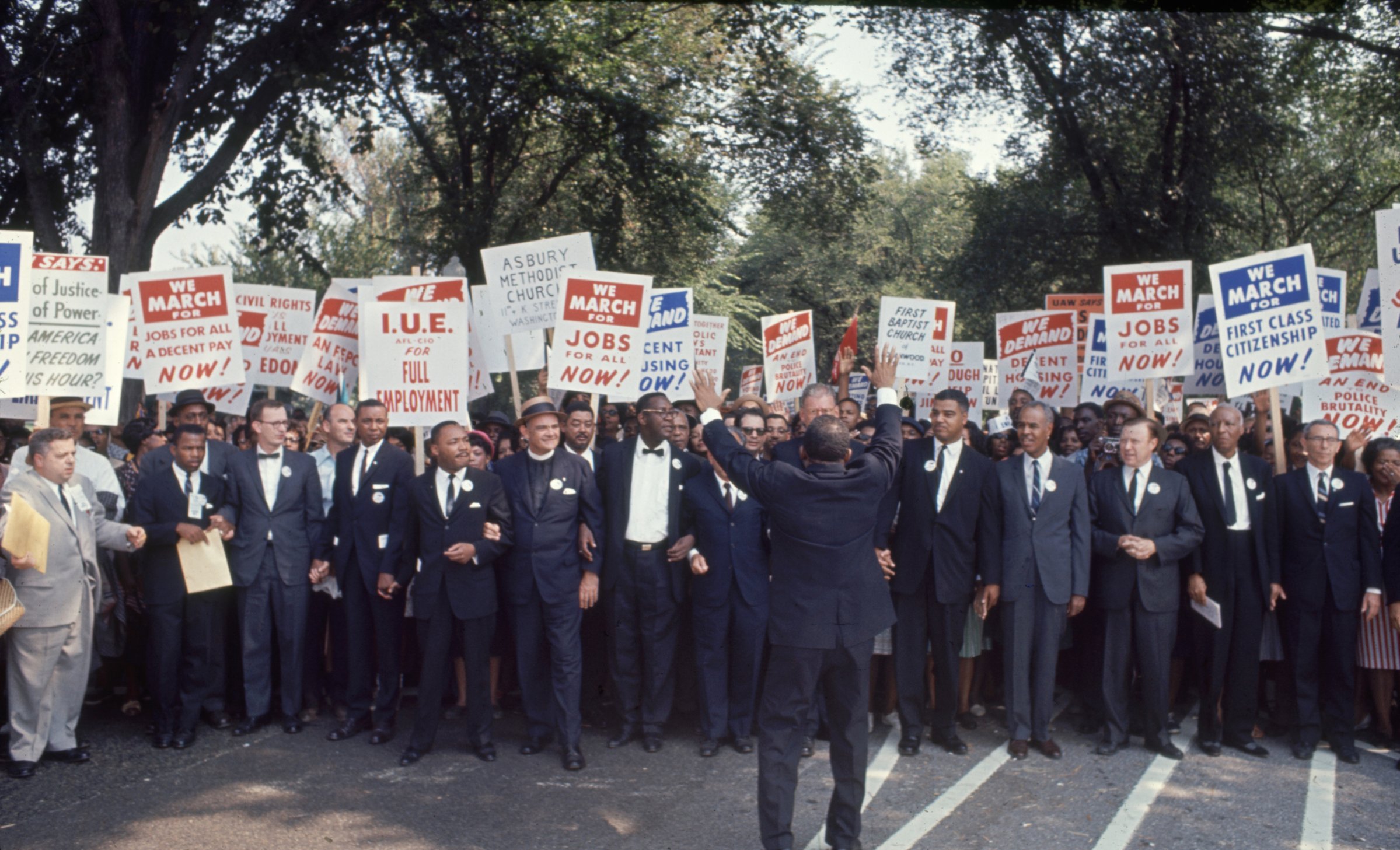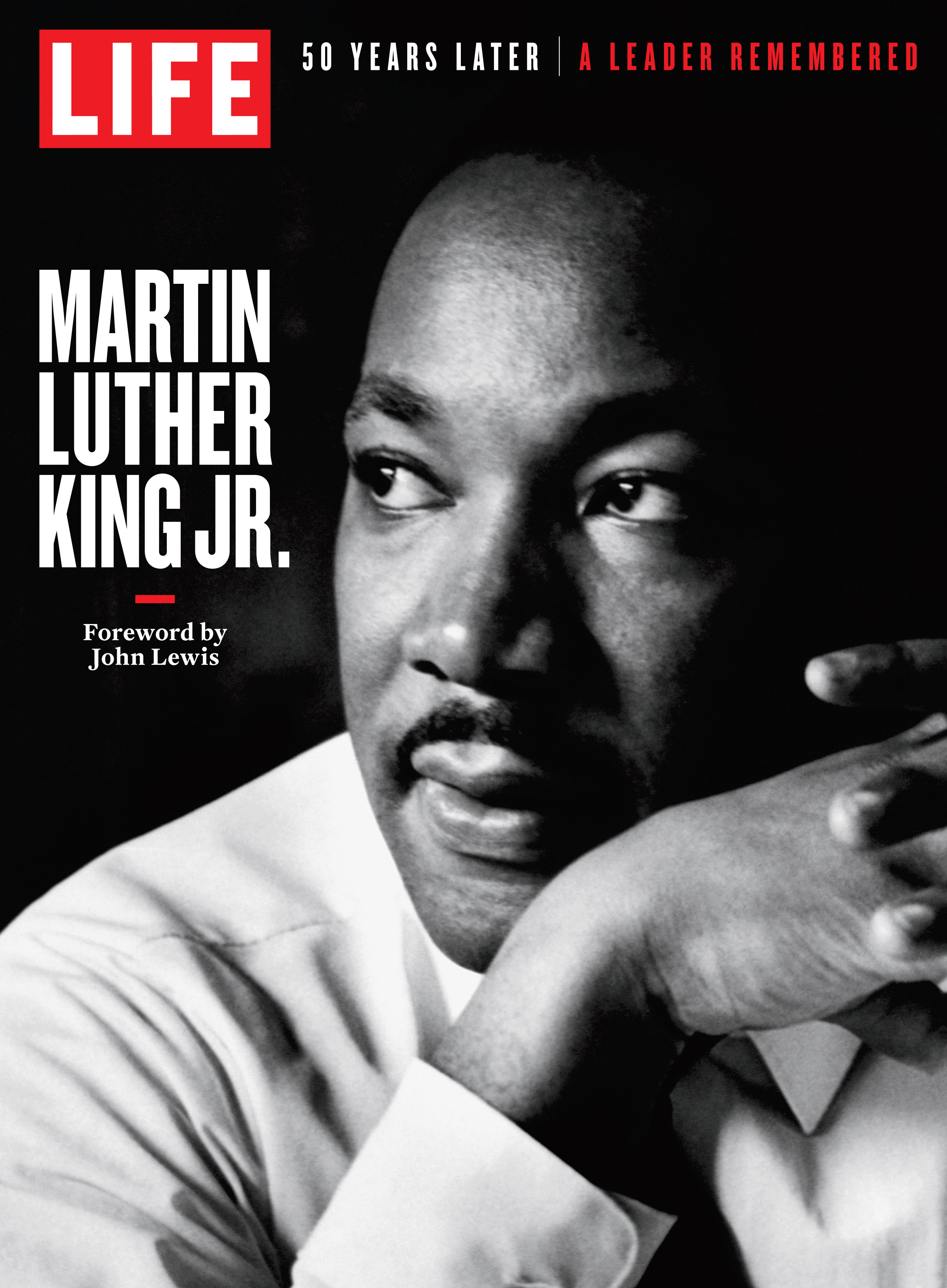
The following feature is excerpted from LIFE Martin Luther King Jr.: 50 Years Later.
I was 15 the first time I heard Reverend Martin Luther King Jr. preach. He was the pastor of the Dexter Avenue Baptist Church in Montgomery, Ala., leading the city’s bus boycott, and his weekly sermons were carried on the radio. This particular sermon was called “Paul’s Letter to American Christians.” It was like Paul’s letter to the church at Corinth—where he said people can make things better through faith and hope and love—but adapted to what was going on in our country. Reverend King didn’t name Rosa Parks, who helped spark the boycott by refusing to give up her seat to a white man, but her example was implicit. She had acted in the spirit of Paul’s words, out of hope and faith that change could come.
I had grown up in rural Alabama very, very poor. I saw signs that said White and Colored. White men and Colored men. White Women, Colored Women. And I would ask my mother, my father, my grandparents, “Why? Why is that?” And they’d say, “That’s the way it is. Don’t get in trouble. Don’t get in the way.” But that day, listening to Dr. King, it gave me the sense that things could change.
Of all the gifts given us by Dr. Martin Luther King Jr., I think the greatest has been the belief in society’s ability to change and the power each of us has to affect that change. I am just one man whose life was altered by this conviction. There are thousands, tens of thousands of others. Add us all together, and you have a nation reborn. Today, we are better and better off than we were 50 years ago when Dr. King was taken from us. We have marched toward justice. We have marched toward equality. And Dr. King continues to shape ours lives every day. The legacy of his courageous acts and sacrifices filters into the world around us. We stand on his shoulders. We celebrate his commitment to peace and love, his philosophy of nonviolence, his respect for all peoples. We lean on his strength, his belief in the spirit of history.
Step Into History: Learn how to experience the 1963 March on Washington in virtual reality
It is disappointing that many of Dr. King’s battles remain to be won, that we have not yet laid down the burden of racism, the burden of discrimination, that there is too much violence. It is disappointing that the Congress is walking away from the poor and disenfranchised. It is disappointing we are turning some of our brothers and sisters away from our shores. But we as a country are forever in his debt. I do not know how my life would have been without Dr. King, but I know what it is because of him.
By the time I entered the American Baptist Theological Seminary in Nashville, Tenn., in 1957, Dr. King was quite famous. He had helped found the Southern Christian Leadership Conference, the church coalition that was organizing nonviolent protests across the South to end segregation. He was working with Dr. Ralph Abernathy, also of Montgomery, Reverend C. K. Steele of Tallahassee, Florida, and many other religious leaders. He had taken up the cause of voting rights, and his “Give Us the Ballot” speech, at the Prayer Pilgrimage for Freedom in Washington, D.C., was much discussed. Dr. King’s house had been bombed. He’d been arrested. He now was the face of the civil rights movement.
I was so inspired by Dr. King. I followed his every move, in newspapers, magazines, radio, and television. As a freshman at American Baptist, I decided I wanted to act, too, to make a difference. I set my mind on transferring to Troy State College, an all-white public college in Troy, Ala., where I had been born, to challenge segregationist policies. I sent in my application with a transcript. I never heard a word from the school. Then I wrote to Dr. King about it and he invited me to come meet with him in Montgomery.
I remember it as if it were yesterday. I walked into the room and Dr. Martin Luther King Jr. and Dr. Ralph Abernathy were standing there. Dr. King was behind the desk. He said, “Are you John Lewis? Are you the boy from Troy?” We had this wonderful, wonderful discussion. He said he would help me if I wanted to go to Troy, but I had to discuss it with my parents. They could lose their land. Their home could be bombed or burned. I did exactly what he said. My parents were supportive, but my mother was too afraid, so I decided to stay in Nashville and be in touch with Dr. King.
From time to time, he would come to American Baptist to speak, and I got involved with the sit-ins and the Freedom Rides, the protests against segregated busing on interstate trips. The practice had been declared unconstitutional by the Supreme Court but it was still widespread in the South, and we were going to change that. We planned to not only ride the buses across state lines but to use whites-only waiting rooms, restrooms, and lunch counters. We set out in May of 1961, on a trip that would go from Washington, D.C., to New Orleans, to commemorate the seventh anniversary of the Brown v. Board of Education of Topeka ruling.
The first few stops were uneventful, but when we got to South Carolina, we were met by angry segregationists and our trip grew increasingly violent. When we pulled into the Greyhound station in Montgomery, we were beaten by an angry mob. We took refuge in the First Baptist Church, the same church where I had first met Dr. King. He was always on the front lines, and he joined us from Chicago. It was getting very dangerous, with the crowd threatening to bomb the church, and Dr. King called Attorney General Robert Kennedy, who sent federal marshals and convinced Governor George Wallace to send the Alabama National Guard. Before dawn, we were put in jeeps and transferred to the home of a local businessman, all 21 of us, with Dr. King and Dr. Abernathy.
Dr. King stayed there with us for four nights. People came in and prepared food and we ate together. We came up with a plan to leave Montgomery and continue with the Freedom Ride. We sat on the floor, with pencils and pens, planning to resume our trip through Mississippi and then to New Orleans. We never made it to Louisiana. We were all arrested in Jackson, Miss. Later they took us to the state penitentiary in Parchman, Miss.
If it hadn’t been for Dr. King and Robert Kennedy, I would probably not be an elected official today. These two young leaders lifted me, inspired me. I always felt—I felt it then and I feel it now, almost 50 years later—that when these two young men were taken from us, something died in us. Something died in America. I think in some ways their lives, what they did and what they accomplished, inspired me to try and pick up where they left off. Dr. King taught us not to become bitter or hostile. He taught us to have faith. Dr. King taught us to be human, to treat our fellow human beings as we wish to be treated. We owe it to him to do so.

A civil rights leader in the 1960s, John Lewis was a member of the U.S. House of Representatives from Georgia from 1987 until his death in 2020.
Read more in LIFE Martin Luther King Jr.: 50 Years Later.
More Must-Reads from TIME
- Cybersecurity Experts Are Sounding the Alarm on DOGE
- Meet the 2025 Women of the Year
- The Harsh Truth About Disability Inclusion
- Why Do More Young Adults Have Cancer?
- Colman Domingo Leads With Radical Love
- How to Get Better at Doing Things Alone
- Michelle Zauner Stares Down the Darkness
Contact us at letters@time.com